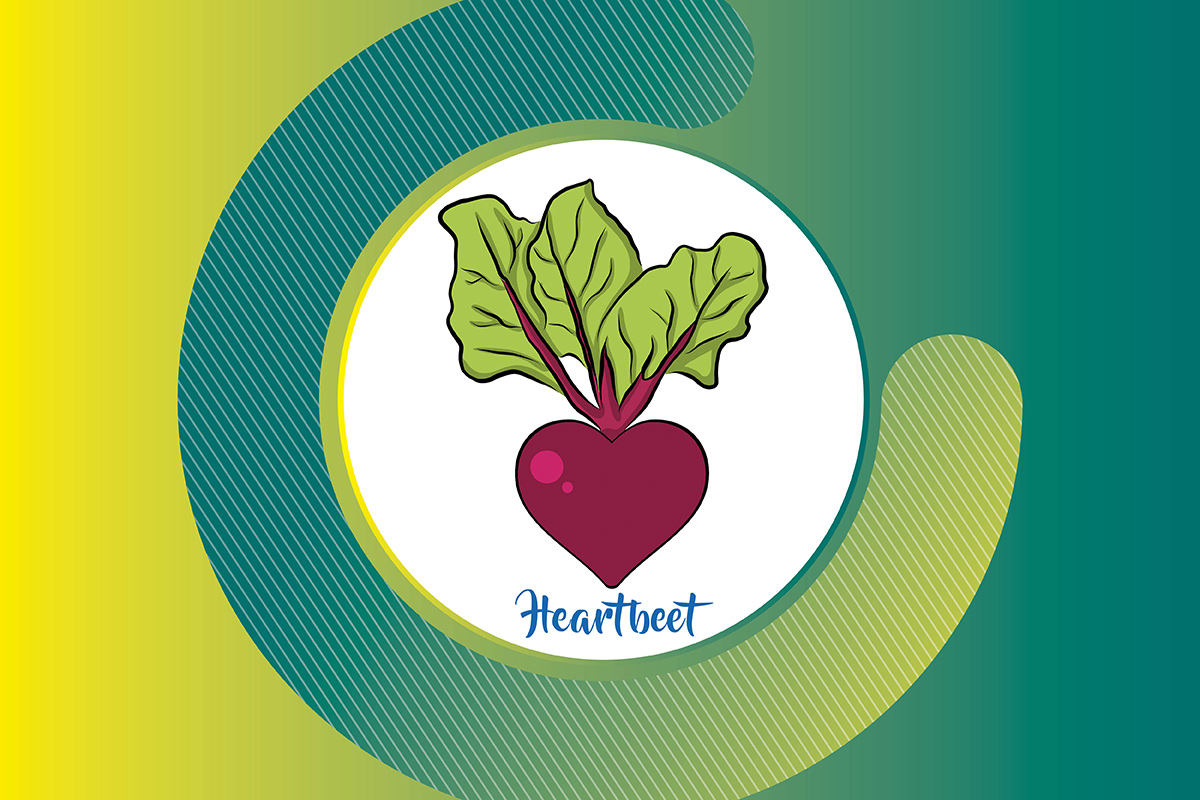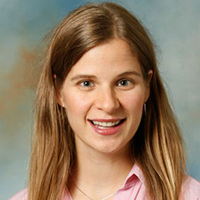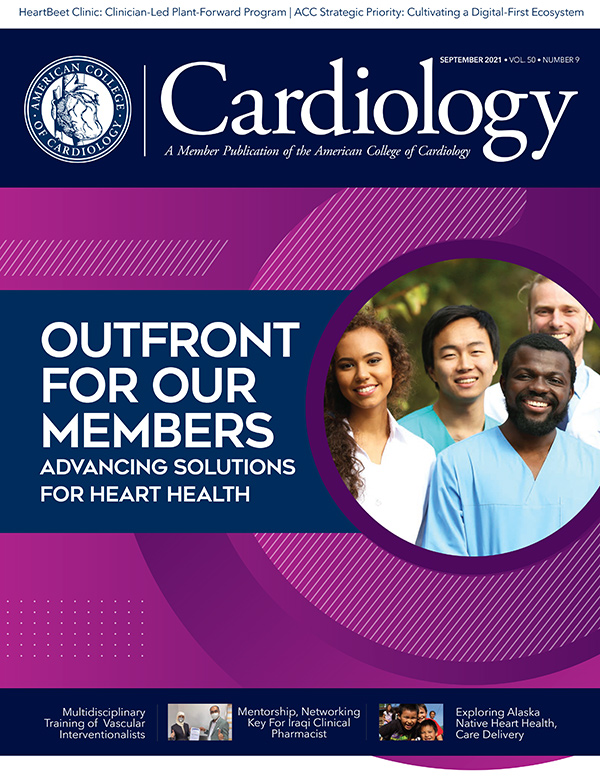Feature | The HeartBeet Clinic: A Plant-Forward Pilot Experience

Is it possible to gain meaningful improvements in risk factors for cardiovascular disease – in just eight weeks – with an evidence-based plant-forward nutrition and lifestyle education program delivered virtually by a trusted clinician? Turns out, the answer is a resounding yes! In fact, every participant had improvements in at least one of the key risk factors (LDL-C, blood pressure [BP], glucose level, weight).
What did it take? A program called the HeartBeet Clinic that was created at the Park Nicollet Cardiology Clinic in Minnesota, with key partnerships across the health system and the community. Another notable fact? Reimbursement was obtained by working with the system insurance experts to identify the right ICD-10 codes.
Going forward, HeartBeet Clinic appointments are now available for any patient at the community cardiology clinic. The feasibility, effectiveness and reimbursement have been demonstrated and the resources and materials developed for the pilot program provide a firm foundation.
From Cattle Ranch to Plants
One gains a unique perspective as a vegetarian who once worked on a cattle ranch and now works as a cardiology physician assistant (PA) and clinical lipid specialist. Our family has a vested interested in keeping our three daughters heart healthy, with both sides having a significant family history of early coronary artery disease. We learned that an all-or-nothing approach to a plant-based diet wasn't necessary for my family (including a husband who hunts) to reap measurable benefits. Although a vegan diet offers the most benefit to lower cholesterol, it can be difficult to implement. I wanted to extend what I'd learned with my family to my patients.
My first inspiration for viewing food as medicine with cardiology patients came from Kim Allan Williams Sr, MD, MACC, when I participated in the ACC's LDL-C: Address the Risk Heart House Roundtable in 2015 as a representative of the Association of PAs in Cardiology. The synergistic benefit of combining evidence-based medicine with lifestyle changes, resulting in significant improvements in cardiac risk factors and symptoms, was impressive.
Cardiovascular disease continues to be the #1 cause of death around the world. Yet, conversations with patients about changing their habits can be a challenging intervention because of variables such as access, cost, social support and cultural differences in a community. The ACC/AHA 2019 Primary Prevention Guideline recommends lifestyle changes as the cornerstone of cardiovascular disease treatment.1 Easier said than done, but could patients benefit from evidence-based plant forward nutrition education from a trusted health care cardiology clinician? This is what I aimed to find out.
Education is paramount, with clear evidence showing that smoking, inactivity, obesity, poor diet quality and heavy alcohol consumption contribute up to 60% of premature deaths and a loss of about 7 to 18 years in life expectancy.2,3
Research has also provided evidence that eating enough of the "healthy" foods is as important as avoiding "unhealthy" foods. Studies confirm that a high intake of plant-based foods, including fruits, vegetables, whole grains, nuts and legumes, rather than animal-based foods, reduce the risk of chronic diseases such as cardiovascular disease and type 2 diabetes.4,5
The cost of "healthier" foods is often cited as a possible barrier. But it's encouraging that a recent meta-analysis from Harvard indicates the difference in cost between the healthiest and least healthy diet was $1.50.6 A bargain when compared to the cost savings gained in preventing chronic disease.
The Upside of a Pandemic
The COVID-19 pandemic brought many challenges, but a silver lining was more free time to create a program that was easy to deliver virtually that would help patients improve their own cardiac risk factors with healthier choices.
A first step was documenting and collecting digital and written resources and turning them into smart phrases for patients to embed within the electronic medical record system. The resources included a two-week menu plan along with my family's favorite recipes and grocery shopping list (for <$200 on Instacart). Books, podcasts, websites and papers published by esteemed ACC colleagues were also listed, along with plant-forward food delivery options that were personally tested and reviewed and priced per serving.
These resources were provided to a small group of motivated patients who had significant improvements in their cholesterol, BP, glucose and weight. Based on these data, I was able to gain support from my institution's leadership to develop the eight-week plant-forward pilot registry, along with my colleagues Pawan Hari, MD; Nicole Carlson PA-C; and Elizabeth Stoebe PA-C. We collaborated with our institution's employee well-being program team, drawing on their in-depth knowledge of lifestyle medicine, to create the HeartBeet Clinic.
ACC Experts Help Guide Program Launch
Without a plant-forward champion at my clinic at that time, my personal contacts and experiences at ACC were instrumental in preparing for meetings with institution leadership to launch the program.
The ACC Heart House Roundtables, think tanks, annual meetings, leadership councils and state chapter meetings provide incredible opportunities to meet experts that contribute to professional and personal growth. The doors open easily at ACC, where members support each other so well.
An ACC webinar on plant-based medicine led by Andrew M. Freeman, MD, FACC, and Koushik Reddy, MD, presented convincing data about the power of plants, as well as real-world examples of how to incorporate nutrition-based medicine into practice.
The value of a nutrition-based practice became more apparent through my conversations with plant-forward clinicians Kyla Lara-Breitinger, MD, and Sharath S. Subramanian, MBBS, MD, FACC, with support from Stephen J. Smalley, MD, FACC, at a meeting of the Minnesota chapter during ACC's annual Legislative Conference.
Introductions to other plant-forward clinicians came with the help of ACC staffer Abby Cestroni, who works with the Interventional Leadership Council. She connected me with the ACC's Nutrition Work Group. An exchange with Karen Aspry, MD, led to emails and then a phone conversation with Danielle Belardo, MD, who shared her valuable experiences and insights, as well as the patient education packet she had created.
It was amazing to have these personal touchpoints from experts in their field, who took time to review my program and advise me on strategy. The ACC is the thread that ties us all together.
Consults, Content, Coaching and Community
In just three days, all 40 spots in the HeartBeet pilot program were filled and a waiting list was made for future rounds of the program, which will start this fall. Staff from the employee well-being group assisted with logistics and coordination of survey collection, appointments and speakers. The pilot ran from September to November 2020.
We had a unique opportunity to ensure nearly all labs and clinic visits were reimbursed using ICD-10 codes. A grant from the Park Nicollet Foundation helped cover the cost for visits with the dietitian for a few employees who had not met their deductible. All other fees were covered and there were no program costs for participants, the cardiology department or the institution.
Participants completed a food recall and validated lifestyle survey before and after the program. Each participant virtually met with a dietitian and a cardiology PA. They were advised to eat more fruits, vegetables, legumes, nuts, seeds and whole grains and eat less meat, eggs and dairy. The number of servings were defined by the participant, guided by what they learned through their consults and program curriculum. Data from the surveys were analyzed by a population health evaluation expert from the employee health program.
Subject matter experts from the institution were speakers for the weekly virtual meetings for the entire group.
The opening and closing weeks focused on visioning and habit formation, respectively, to fuel and sustain success. Small group weekly coaching sessions with a certified lifestyle medicine coach from the employee well-being program provided opportunities for questions and support.
Community Partners Elevate the Experience
The HeartBeet Clinic used free resources in the community, such as grocery store dietitians, who offered virtual group classes and grocery store tours (e.g., where to find nutritional yeast or coconut amios). Vegan chefs donated their time for virtual cooking demonstrations. Instructors certified in Food for Life from the Physicians Committee for Responsible Medicine (PCRM) volunteered to provide bonus classes. One invaluable speaker, who had opened a plant-based PCRM clinic with his wife, had suffered a heart attack and learned firsthand about the benefits of a vegan diet.
The virtual weekly classes and bonus sessions such as cooking demonstrations were recorded and now provide free lifestyle education for any patient, along with all the other resources, including a HeartBeet Pinterest recipe page.
Engaged Patients, Exceeded Targets
The results of the pilot program showed 100% of participants had an improvement in at least one of the objective parameters and that two-thirds (63%) had moved from the unhealthy range to the goal range for at least one parameter (LDL-C <130 mg/dl; BP <130/80 mm Hg; glucose <100 mg/dl). Systolic BP was improved for 70% of participants, LDL-C in 64%, and 53% of participants lost weight.
A shift was seen in the number of servings of animal products and plant-based products consumed every week, with a 200% decrease in the parameter of 15+ servings of animal products and a 96% increase in 15+ servings of plants. One of two patients followed a whole food, plant-forward diet most days.
Validated survey scores for sleep quality, pain, self-efficacy and energy were also improved. A significant improvement in sleep quality was found, with 70% of participants describing it as poor to terrible before the program and after the program 70% describing it as good to excellent. Four of 10 participants reported more days a week with 30+ minutes of physical activity.
Based on these results, HealthPartners is exploring how to incorporate lifestyle medicine and plant-forward programs for more employees and potentially health plan members.
The HeartBeet clinic was the recipient of the HealthPartners President's award from CEO Andrea Walsh in 2020, validating that the mission to help improve the health of employees and the community through lifestyle changes aligned with the organization's values.
References
- Arnett DK, Blumenthal RS, Albert MA, et al. 2019 ACC/AHA guideline on the primary prevention of cardiovascular disease. J Am Coll Cardiol 2019;74:e177-e232.
- Satija A, Bhupathiraju SN, Spielgelman D, et al. Healthful and unhealthful plant-based diets and the risk of coronary heart disease in the U.S. adults. J Am Coll Cardiol 2017;70:411-22.
- Loef M, Walach H. The combined effects of healthy lifestyle behaviors on all-cause mortality: a systematic review and meta-analysis. Prev Med 2012;55:163-70.
- GBD 2015 Mortality and Causes of Death Collaborators. Global, regional, and national life expectancy, all-cause mortality, and cause-specific mortality for 249 causes of death, 1980-2015: a systematic analysis for the Global Burden of Disease Study 2015. GBD 2015 Mortality and Causes of Death Collaborators. Lancet 2016;388:1459-1544.
- Fraser GE. Vegetarian diets: what do we know of their effects on common chronic diseases? Am J Clin Nutr 2009;89:1607S-1612S.
- Rao M, Afshin A, Singh G, et al. Do healthier foods and diet patterns cost more than less healthy options? A systematic review and meta-analysis. BMJ Open 2013;3:e004277.

This article was authored by Laura Ross, PA-C, CLS, AACC, a physician assistant in cardiology at the Park Nicollet Heart and Vascular Center in St. Louis Park, MN. She is a member of ACC's Interventional Leadership Council and the Prevention Work Group, and she is president-elect of the Association of Physician Assistants in Cardiology.
Clinical Topics: Cardiovascular Care Team, Diabetes and Cardiometabolic Disease, Dyslipidemia, Prevention, Atherosclerotic Disease (CAD/PAD), Lipid Metabolism, Nonstatins, Diet, Exercise, Hypertension, Smoking, Sleep Apnea
Keywords: ACC Publications, Cardiology Magazine, Alcohol Drinking, Ambulatory Care, Blood Glucose, Blood Pressure, Books, Cardiology, Cardiovascular Diseases, Cause of Death, Cholesterol, LDL, Chronic Disease, Cocos, Cooking, Coronary Artery Disease, Cost Savings, Counseling, Curriculum, Deductibles and Coinsurance, Delivery of Health Care, Diabetes Mellitus, Diabetes Mellitus, Type 2, Diet, Healthy, Diet, Vegan, Dyslipidemias, Electronic Health Records, Evidence-Based Medicine, Exercise, Fabaceae, Feasibility Studies, Fruit, Glucose, Goals, Habits, Heart Disease Risk Factors, Hypertension, Insurance, International Classification of Diseases, Leadership, Learning, Life Expectancy, Life Style, Meat, Medicine, Mentoring, Mercury, Minnesota, Mortality, Premature, Nutrients, Nutritional Sciences, Nutritionists, Nuts, Obesity, Occupational Health, Osteoarthritis, Pandemics, Physician Assistants, Physicians, Pilot Projects, Plants, Edible, Population Health, Primary Prevention, Registries, Risk Factors, Self Efficacy, Sleep, Smoking, Social Support, Specialization, Spouses, Substance-Related Disorders, Supermarkets, Universities, Ursidae, Vegans, Vegetables, Whole Grains
< Back to Listings


